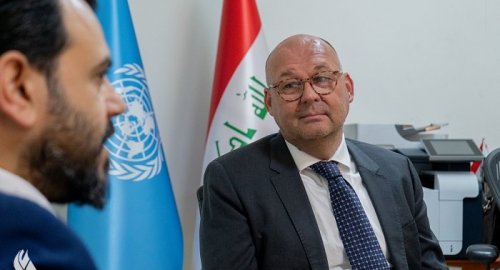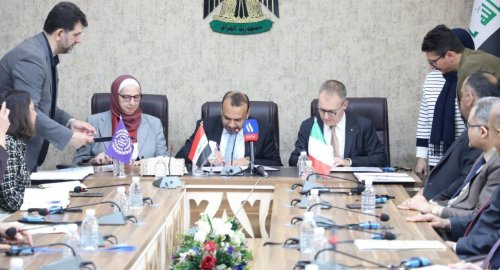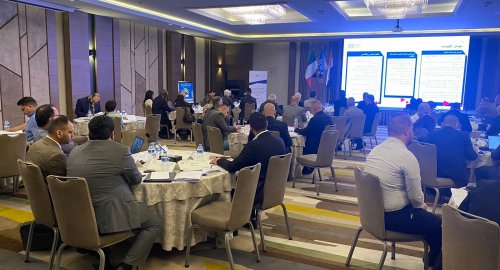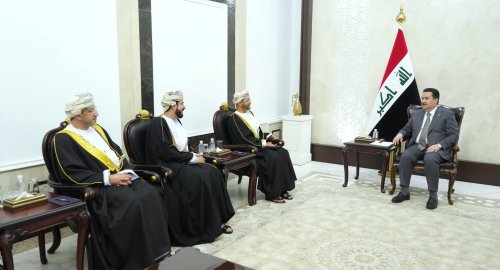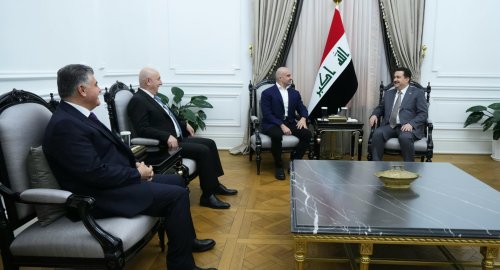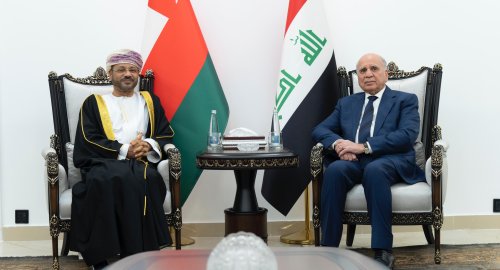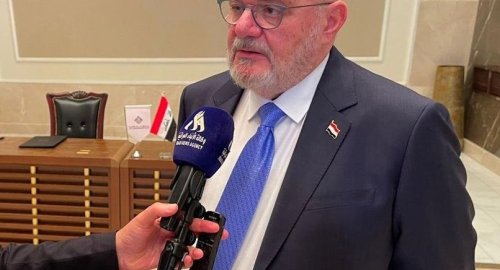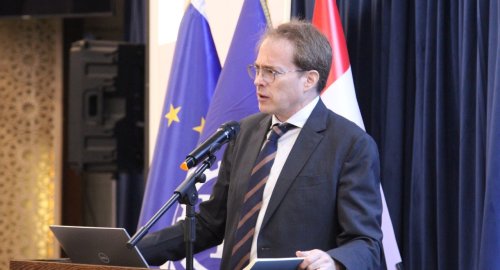
ILO: Social Security Law in Iraq is a historic step to protecting workers

Local
- 5-11-2024, 19:08
INA - BAGHDAD
The Director of Social Protection at the International Labor Organization - ILO, Igor Bosk, confirmed on Tuesday that the Social Security Law in Iraq guarantees the preservation of workers' rights and their economic flexibility.
"Social security is not just a safety net, but rather a transformative tool that enables workers to be active contributors to their own well-being, rather than passive recipients of aid. This empowerment enhances dignity, resilience and economic participation," said Bosk during the ceremony of the national campaign to raise awareness of the Social Security Law in Iraq - attended by the reporter of the Iraqi News Agency - INA.
Bosk stressed that "a strong social security system enhances formal employment and encourages active participation in the labor market, which are essential elements for Iraq's long-term growth and stability. The social security system forms the backbone of a comprehensive social protection framework, as it shifts from providing temporary relief to sustainable protection against various risks during life stages, such as old age, illness, disability and unemployment."
"The Iraqi parliament took a historic step by enacting Law No. 18 on retirement and social security, an achievement that was guided by the technical expertise of the ILO and is in line with the Social Security Convention for Minimum Standards No. 102 ratified by Iraq. The focus now shifts to implementation,” he said.
He stressed “the importance of passing a law similar to Law No. 18 in the Kurdistan Region of Iraq. The ILO is ready to support this effort.”
Regarding the public sector in Iraq, Bosk noted that “about a third of the workforce is in the public sector, with more than 50% of civil servants enjoying generous pensions and comprehensive social security coverage. The new law is a significant improvement in social security benefits for the private sector, contributing to narrowing the gap between public and private sector workers, thus creating a more balanced and attractive labor market across all sectors.”
Despite the progress made, Bosk noted that “there are still significant challenges facing the implementation of social security in Iraq. Currently, only about 6% of private sector employees are covered by social security, with a slightly higher rate of 16% in the Kurdistan Region. Expanding coverage - especially in the informal economy - is a major challenge. According to the 2021 Labor Force Survey, about two-thirds of Iraqi workers work in informal jobs, equivalent to about 5.7 million people working in informal jobs," stressing that "social security is essential to regularizing these jobs, especially in sectors such as agriculture, construction, manufacturing, and services."
"Structural issues discourage the working poor from registering for social security, as many fear losing crucial social benefits or facing heavy taxes. Employers' reliance on the informal economy and the weakness of unions and labor inspections complicates these challenges, calling for bold reforms and continued commitment," he highlighted.
A year after the enactment of the new retirement and social security law, Bosk called for the need for "clear and simplified instructions for registration to enable social security offices to effectively expand coverage," stressing "the importance of simplifying registration procedures, administrative processes, and disbursement procedures; to make social security benefits faster, more transparent, and easier to access."
“By implementing digital systems and ensuring checks and balances, we can reduce bureaucratic delays, enhance efficiency, and build trust among users, fostering a more responsive and accountable social security system,” he said.
He noted that “the management of the fund, which receives contributions from employers and workers, must be carried out by the highest standards of governance and accountability, to ensure transparency and reliability in the management of these funds. Good management of the fund not only provides benefits to current beneficiaries but also ensures the sustainability of the system for future generations. Many elderly people in Iraq, especially women who were unable to participate in the formal labor market, remain without adequate social security coverage, so designing a social pension that meets their specific needs will be a crucial step toward ensuring comprehensive protection for all, regardless of previous employment status.”
Bosk stressed that “a successful transition to a comprehensive social security system depends largely on effective communication. The campaign we are launching today is essential to bridge the knowledge gap, ensuring that both workers and employers understand the registration process and the benefits provided by social security, and how to access them.”
"Awareness of workers’ rights and tangible benefits, such as old-age income security, survivor and disability benefits, health coverage, maternity protection, work injury compensation, and unemployment protection, will enable them to seek formal jobs and demand proper registration," he added, noting "For employers, they can communicate clearly about the registration process, their responsibilities, and the long-term benefits, such as a more stable and productive workforce, and reduced resistance to legalizing labor relations.”
He stressed the “importance of the role of this campaign in employing a multi-level communication strategy that engages with local communities and leverages platforms for social and mainstream media to continue to reach the largest number of individuals."
At the end of his speech, Bosk considered that "building a comprehensive understanding and collective commitment through this campaign will contribute to building a strong and comprehensive social security system in Iraq. Together, we can make social security the cornerstone of a just and prosperous future for all Iraqis."
Last July, PM Muhammed S. Al-Sudani stressed, while hosting a group of businessmen specialized in the oil industry, the need for private sector companies to adhere to the retirement and social security law for workers; to expand care for them in this sector and increase the number of insured persons.
First joint picture of Greenland Ice Sheet melting, ESA
- Multimedia
- 09:28
US Central Command: We killed ISIS terrorist leader Abu Yusuf in Syria
- International
- 24/12/20
Liverpool compete with Real Madrid to sign Olympique Lyonnais star
- Security
- 24/12/19
ISC, ADX discuss Strengthening Economic Ties
- Economy
- 24/12/16
Iraq assumes presidency of Arab Investment Company’s Executive Board
- Economy
- 24/12/17
